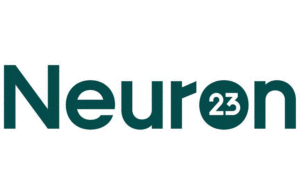 The early-stage biotech Neuron23 and Qiagen (NYSE:QGEN) will work together to develop the first next-generation sequencing (NGS) companion diagnostic for Neuron23’s leucine-rich repeat kinase 2 (LRRK2) inhibitor for Parkinson’s disease NEU-723.
The early-stage biotech Neuron23 and Qiagen (NYSE:QGEN) will work together to develop the first next-generation sequencing (NGS) companion diagnostic for Neuron23’s leucine-rich repeat kinase 2 (LRRK2) inhibitor for Parkinson’s disease NEU-723.
In the collaboration, Qiagen will focus on developing and validating a clinical trial assay to detect biomarkers that predict the responsiveness of Parkinson’s disease patients to an LRRK2 inhibitor.
The companion diagnostic is the first to be developed for Parkinson’s, according to Neuron23 CEO Nancy Stagliano. “Qiagen’s blood-based test will help to identify patients with Parkinson’s disease who are likely to respond to Neuron23’s LRRK2 inhibitor,” Stagliano said in a news release. “The development of a companion diagnostic identifying this sub-population of Parkinson’s disease patients will de-risk the clinical development of Neuron23’s LRRK2 inhibitor and help identify individuals who may benefit from this disease-modifying therapy.”
The alliance between Neuron23 and Qiagen would also cover future development of additional companion diagnostics.
The parallel development of the diagnostic assay and the therapeutic will enable Neuron23 and Qiagen to file an application with the FDA for premarket approval of the NGS companion diagnostic test in tandem with the new drug application for Neuron23’s LRRK2 inhibitor.
Researchers have discovered that mutations in the LRRK2 gene represent the most common cause of genetic Parkinson’s disease. Individuals who inherit gain of function mutations in LRRK2 face an elevated risk of developing Parkinson’s in later life.
In March, Neuron23 announced that it had closed a $100 million Series C funding round. SoftBank Vision Fund led the most recent funding round. At that time, the company also announced that it had selected NEU-723 as a clinical candidate for Parkinson’s.
NEU-723 is now in the late stages of preclinical development.
Founded in 2018, Neuron23 is focused on neurodegenerative, neuroinflammatory, systemic autoimmune and inflammatory diseases.
The company aims to distinguish itself from competitors by developing precision medicines to treat neurodegenerative diseases.
Neuron23’s initial LRRK2 program in Parkinson’s disease represents its strategy of identifying a subset of patients who could benefit from a novel therapy.